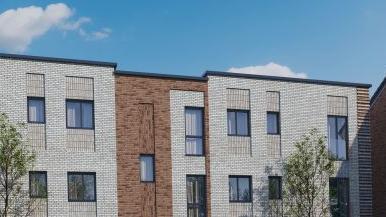Gresham House Residential Secure Income (GH ReSI), a fund focused on affordable shared ownership homes in the UK, has secured £125 mln (€145 mln) from two government pension schemes.

This investment boost will allow GH ReSI to acquire over 1,000 new affordable homes, valued at £300 mln (€349 mln). This adds to the 1,400 homes already acquired through 18 investments across England.
The commitments from Gloucestershire and Devon Pension Funds bring the total raised by GH ReSI to over £310 mln (€361 mln).
In addition to the national investment strategy, both UK pension funds allocated additional capital for local investments, directly benefiting residents in Gloucestershire and Devon by providing much-needed affordable housing.
Ben Fry, managing director, housing at Gresham House, said: ‘We have a wealth of opportunities in the pipeline, so we will be putting this new capital to use over the coming months to deliver more new developments both across the UK and specifically in Gloucestershire and Devon. We look forward to working with a combination of national and smaller local housebuilders to deliver these much-needed new affordable homes.’
Cllr Lynden Stowe, chair of the Gloucestershire Pension Fund, commented: ‘The Pension Fund has recently implemented a new allocation to affordable housing and believes that shared ownership will provide both financial and positive impact benefits. Through this commitment to shared ownership, we will contribute to the delivery of much-needed new housing for our residents in Gloucestershire.’
Cllr James Morrish, chair of the Devon Investment and Pension Fund Committee, added: ‘We are delighted to be making this significant contribution to GH ReSI, which will deliver stable long-term returns for our members while supporting the provision of vital new housing in Devon, where affordability is often an acute challenge.’
GH ReSI focuses on acquiring shared ownership homes through ReSI Homes, its dedicated social housing provider. The fund aims to provide investors with reliable, long-term income that increases with inflation, while at the same time making homeownership more accessible for lower to middle-income earners by investing in new, energy-efficient homes that are affordable.










